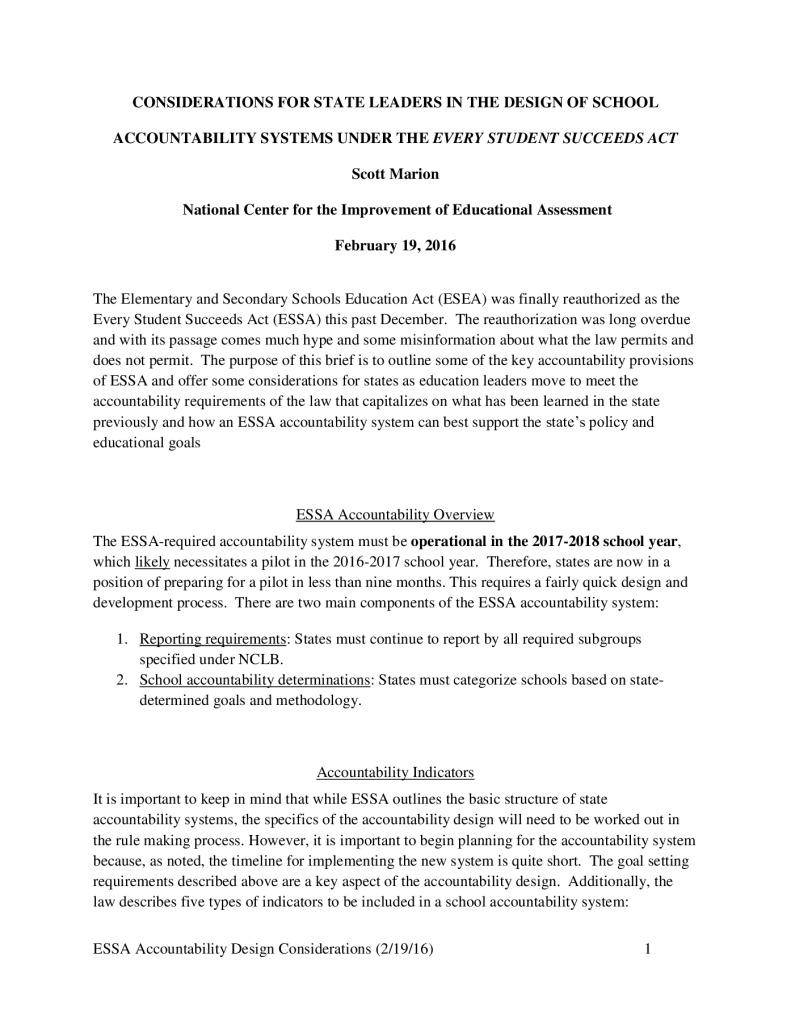Resource Hub
Explore guides, research papers, policy briefs, and tools to aid decisions on standards and assessments.
Considerations for State Leaders in the Design of School Accountability Systems under the Every Student Succeeds Act
The recently passed Every Student Succeeds Act (ESSA) differs significantly from its predecessor, known as the No Child Left Behind Act. The new ESSA provides only a narrow timeline for states to adjust their accountability systems. This publication provides initial guidance for this adjustment process. The author writes: “The purpose of this brief is to outline some of the key accountability provisions of ESSA and offer some considerations for states as education leaders move to meet the accountability requirements of the law that capitalizes on what has been learned in the state previously and how an ESSA accountability system can best support the state’s policy and educational goals.” The author provides recommendations and specific steps that states should follow.


The author of this article states his purpose clearly and meets it, drawing largely on his own considerable expertise. The content is well organized and extremely important to states who have limited time to revise their current accountability systems to comply with the new federal Every Student Succeeds Act (ESSA). The author’s recommendations are well stated as is his sense of urgency. Although the article’s design is Spartan, the author writes and communicates clearly, avoiding overly technical language. States should find this early guidance helpful, thus earning a high utility rating. Evidence of effectiveness is not addressed, but the author’s reputation and the article’s overall quality suggest a potential positive impact on learning.